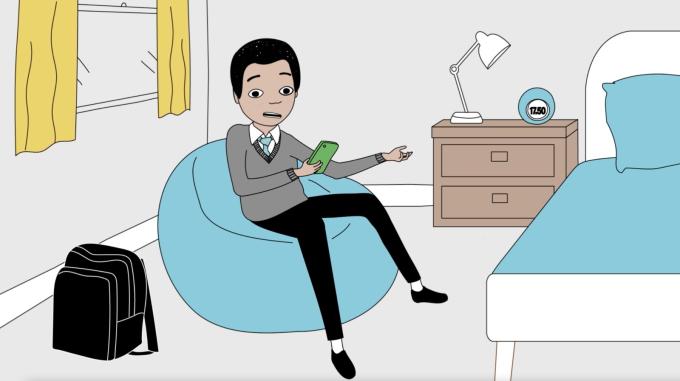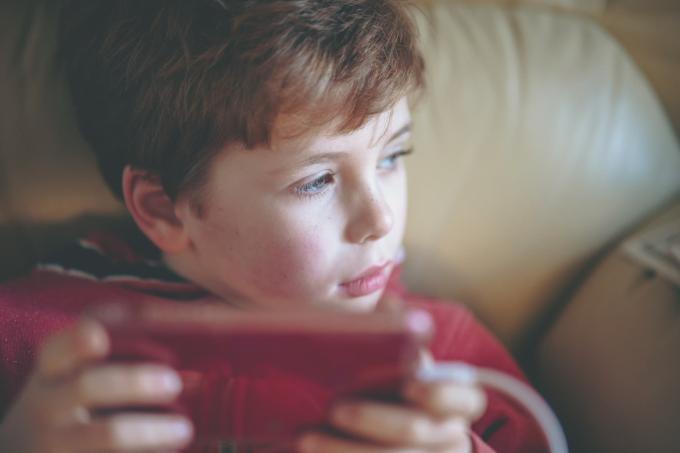Sometimes children and teenagers can feel overwhelmed and worried by stories they hear or read about in the news or on social media.
As a parent or carer, you can help to reassure your child, but it can be difficult to find the right words or know how to approach the situation. Lois Wignall, Assistant Director - Mental Health and Trauma Services, gives her advice on how to approach talking to your children about distressing news.
Finding out what they know already
Depending on their age and access to information, children may already know a lot about what’s going on in the news. If your child has some information but not enough for the story to make sense, their mind might jump in and fill the gaps.
So, start with finding out what they already know so that you can help fill in any gaps and provide them with additional context and information where possible.
Talk to them about what they might have watched or read in the news, or what’s being said at school or shared on social media.
Age-appropriate conversations and information
Younger, primary school-aged children need a story which makes sense to them. The way they take in and process news will vary dependent on their age, so think about what would work best for them.
Older, primary school-age children and pre-teens might be curious about the details. Reliable children’s news sources are a good starting point, which you can explore together. This can help you pick up on any specific fears, or worries, including misinformation, that your child might be holding.
The BBC's Newsround is specifically aimed at children aged between 6 to 12-years-old and offers bitesize news stories which are easy to read and understand.
Twinkl News Room publishes a daily news article aimed at primary school children to help them navigate the news with confidence.
First News Live is a weekly news show presented by kids for 7 to 14-year-olds which aims to answer questions about news, current affairs and politics.
Or if your child prefers podcasts, they might like The Week Junior Show podcast, where each week the team discuss their favourite stories, debate the week’s hot topic and unpick fake news.
If you are a parent or carer to a teenager, they might appreciate the opportunity to share their own knowledge and thoughts with you. Ask a few open questions they can engage with, like ‘What do you think about that?’, and ‘Where did you find out about that?’.
With children of all ages, you can point out the examples of people supporting those in need to give your child a positive, hopeful message. It could be the kindness of individuals or how organisations are helping.
Giving them space to express their thoughts and feelings
As a parent or carer, you might be worried about the impact that distressing news is having on your child. Maybe you’re worried about saying too much or too little, or the wrong thing, when talking to them about what’s going on in the world.
You can provide space for your child to acknowledge, express and share their feelings and questions. You don’t have to have all the answers. This will help to reassure them that whatever they’re thinking and feeling, you are there to listen.
The importance of questions
It’s common for children and young people to have questions about things they may have seen, heard or read. Encouraging them to ask questions lets them know they will be taken seriously and creates space for open conversations.
There may not always be an easy or immediate answer, and it’s ok to admit you may not know the answer at all. You can still validate their questions and show them you are taking them seriously by saying something like, ‘That’s a really important/ interesting/ useful question, let’s think about it together’, or ‘I’ll do my best to answer or find out’.
Positive action
If your child wants to do something to help, you can help to explore ideas with them. This could include raising money to donate to a charity supporting people in need, writing to your local MP, or finding out about volunteering opportunities in your community.
Beyond talking
Some children and young people won’t want to talk, but they might want to explore and express feelings in other ways, like through music, art, play and writing.
If you feel overwhelmed by the level of distress you or your child is experiencing, then don’t be afraid to seek support from your GP or professional support services.

Staying safe on the internet
We have put together some tips to help parents and carers start the conversation about online safety.

How to cope with stress
It’s completely normal to sometimes feel stressed and we can all experience it in different ways. If it feels like you’re getting overwhelmed with stress, there are things you can do to help lighten the load.

Keeping your child safe on their smartphone
In this blog, a range of experts share things they’d suggest you do, and should be aware of, if you’re giving your child a smartphone.

